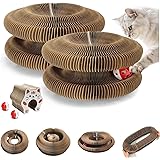What are the essential steps to take when bringing a new kitten home? How can you ensure a smooth transition for both you and your kitten? Caring for a kitten requires attention to detail, patience, and a willingness to learn about kitten care tips.
As you prepare to welcome your new furry friend, it’s crucial to understand the importance of proper care and socialization. For instance, kittens begin to eat solid food between four and five weeks old. They should be started on vaccinations at six weeks old. You can find more information on kitten development at kitten care resources.
When it comes to caring for a kitten, it’s vital to provide a safe and nurturing environment. This includes preparing your home by providing space for the kitten to play, buying cat essentials, and cat-proofing the home. Kittens should have two sets of food and water bowls to allow for daily sterilization.
They should be fed food formulated specifically for their age. By following these kitten care tips, you can help your kitten thrive and develop into a happy and healthy adult cat.
Key Takeaways
- Prepare your home by providing space for the kitten to play and cat-proofing the home.
- Understand the importance of socialization and basic care for your kitten.
- Provide two sets of food and water bowls to allow for daily sterilization.
- Feed your kitten food formulated specifically for their age.
- Schedule regular veterinary check-ups and vaccinations to maintain your kitten’s health.
- Consider pet insurance to help manage veterinary expenses.
- Introduce your kitten to grooming gradually to minimize stress.
Understanding Kitten Behavior
When it comes to kitten behavior management, every interaction matters. Kittens don’t like being alone; they love to be with others. Raising a kitten means paying attention to their social needs, play, and exploration.
Kittens that get 15 to 40 minutes of attention daily for the first seven weeks grow bigger brains. They become more playful and curious. Skills learned early are key, as they may be lost if not practiced early.
Socialization Needs
Kittens should stay with their littermates or other cats for at least 12 weeks. This helps them learn social skills. It’s a critical time for their development and future behavior.
Play and Exploration
Playtime is important, with 3 to 4 play sessions a day recommended. Play helps kittens grow and develop. Before they wean, 100% of kittens play with others or objects.
Communication Signals
It’s key to understand your kitten’s communication. Knowing their body language and sounds helps meet their needs. This prevents behavioral problems.
Essential Supplies for Your Kitten
Having the right supplies is key for your kitten’s health and happiness. Kittens need a balanced diet, a clean and safe place to live, and lots of playtime. It’s important to get the right supplies for your kitten’s best start.
Start with food and water bowls and a litter box setup that fits your kitten’s needs. It’s good to have one litter box for each cat, plus one more. Cleaning the litter box every day is also crucial to keep your kitten using it.
Kittens also need lots of toys and accessories to keep them entertained and active.
Food and Water Bowls
Kittens need special food for growth, so choose kitten food labeled as such. Canned kitten food is best because it helps keep them hydrated and full.
Litter Box Setup
It’s recommended to have 2 litter boxes, one for each cat plus one extra. The Frisco Senior and Kitten Cat Litter Box is great for small kittens and grows with them.
Toys and Accessories
Kittens need at least two to three scratching surfaces. Hard-sided plastic carriers are easy to clean and recommended by vets. Make sure to have at least one cat tree or tower that’s at least 6 feet tall for play and enrichment.
By following these tips and getting the right supplies, you can keep your kitten healthy and happy. Always remember to focus on kitten health essentials like a balanced diet, a clean environment, and lots of play and exercise.
| Supply | Description |
|---|---|
| Food and Water Bowls | Specifically labeled kitten food and water bowls |
| Litter Box Setup | One litter box per cat, plus one additional box |
| Toys and Accessories | Two to three different types of scratching surfaces, hard-sided plastic carriers, and cat trees or towers |
Choosing the Right Food for Your Kitten
Feeding your kitten the right food is key. A kitten feeding guide can guide you. Kittens need lots of protein, about 30% of their diet. They also need to eat often, at least three to four times a day.
A good kitten health essentials plan mixes canned and dry food. Canned food adds moisture, while dry food keeps their teeth clean. Always pick high-quality food that meets the kitten’s needs, as set by the American Association of Feed Control Officials (AAFCO).
- Protein content: approximately 30% of energy
- Feeding schedule: at least three to four meals a day
- Food type: mix of canned and dry food
- Nutritional requirements: meet AAFCO standards
By following a detailed kitten feeding guide and focusing on kitten health, your kitten will grow into a strong adult cat.
Creating a Safe Home Environment
Creating a safe home for a kitten is key. Kittens are curious and love to play, chew, and swallow things. It’s important to kitten-proof your home to keep them safe.
Remove loose items that can be choking hazards or cause harm if swallowed. This includes toys, broken objects, hair ties, rubber bands, and string. Also, keep houseplants away from your kitten as they can be toxic.
Invest in cat-friendly furniture and use a pet gate to secure stairs. Use non-toxic household cleaners to keep your kitten safe. By following these tips, you can make a safe and comfy space for your kitten.
Some key things to consider for a safe home include:
- Provide a secure space for your kitten to play and rest.
- Remove any hazardous materials or objects.
- Create a routine to help your kitten feel secure and develop good habits.
By focusing on your kitten’s safety and well-being, you can help them grow into a happy and healthy cat.
Health Care Basics for Kittens
When it comes to kitten health essentials, regular vet visits are key. The first vet visit should happen within the first week of bringing your kitten home. Your vet will do a physical check, talk about raising a kitten basics, and guide you on vaccinations and care.
A typical vaccinations schedule for kittens starts at 6 weeks. Shots are given every 3-4 weeks until the kitten is four months old. It’s crucial to stick to this schedule to protect your kitten from common diseases.
Also, flea and tick prevention is vital for your kitten’s health. Your vet can suggest the best prevention based on your kitten’s age, health, and lifestyle.
- Regular veterinary check-ups every 6 months
- Following the recommended vaccinations schedule
- Implementing flea and tick prevention measures
- Monitoring for signs of illness or disease
By following these kitten health essentials and working with your vet, you can ensure your kitten grows healthy and happy. Remember, raising a kitten means paying attention to their unique needs. With the right care, you can give your kitten the best start in life.
| Age | Vaccinations | Preventive Care |
|---|---|---|
| 6 weeks | First vaccinations | Flea and tick prevention |
| 10 weeks | Second vaccinations | Continued flea and tick prevention |
| 4 months | Final vaccinations | Ongoing preventive care |
Grooming Your Kitten
Grooming is key in kitten care. It keeps them clean and healthy. Kittens may need help with bathing, nail trimming, and brushing. Regular grooming cuts down on fur-balls and tangles.
Start a grooming routine early. Short-coated kittens need brushing once a week. Long-coated ones need it daily. This prevents matting and hairballs. About 30% of kittens get hairballs, especially in certain seasons.
Bathing Techniques
Bathing is crucial for kittens. Use water between 96.8°F and 98.6°F. Choose a mild shampoo and avoid the ears and eyes.
Nail Trimming
Trimming nails is important. Start when they’re 8 weeks old. A vet can show you how to do it safely.
Brushing Fur
Brushing is vital. It removes loose hair and prevents matting. Regular brushing also reduces stress and bad grooming behaviors by up to 40%.
| Grooming Frequency | Coat Type |
|---|---|
| Once a week | Short-haired |
| Daily | Long-coated |
Follow these grooming tips and routines. Your kitten will stay clean, healthy, and happy.
Training Your Kitten
Starting early is key in kitten behavior management. Kittens learn best during their kittenhood. Positive reinforcement is important to avoid stress and bad habits.
Raising a kitten needs patience and consistency. Start basic training when they’re weaning. Teach them to use the litter box and basic commands like “sit” and “stay”. Use treats as rewards.
For more tips on kitten training, know that kittens naturally want to cover their waste. Start using the litter box right away. Place it in different spots to help them learn.
Litter Box Training
Take kittens to the litter box after meals and naps. This helps them connect the litter box with their natural behavior.
Basic Commands and Tricks
Teach kittens basic commands and tricks like shaking hands. Consistent training and positive reinforcement work best. Kittens can learn paw gestures in just a few days.
Socialization Tips
Start socialization after basic training. It’s about interacting with people and other animals. Early socialization helps kittens feel comfortable with new faces and pets.
Understanding Kitten Sleep Patterns
When caring for a kitten, knowing their sleep patterns is key. Kittens sleep about 22 hours a day from birth to two weeks old. As they get older, they sleep less, with adult cats sleeping around 16 hours a day.
Kittens sleep in short bursts, unlike humans who sleep all night. Their natural activity at dusk and dawn can make setting a routine hard. But, creating a cozy sleeping spot can help them feel more at ease, especially when moving to a new home.
- Provide a warm and secure spot for sleeping.
- Introduce familiar items, like a blanket from their previous home, to ease adjustment.
- Schedule playtime close to the kitten’s last nap of the day to help them sleep better at night.
A safe and comfy sleeping area is vital for a kitten’s health and growth. By following these kitten care tips and understanding their sleep, you can ensure your kitten does well.
Kitten Playtime Activities
Playtime is key for kitten behavior and growth. Kittens need at least two to three play sessions a day. A long play session before bed can stop them from playing at night.
Interactive play helps avoid bad behaviors from boredom. Puzzle toys challenge their minds and keep them busy. Play should last 10-15 minutes, at the same time every day. Simple things like empty boxes or yarn balls are great toys.
Playing together strengthens the bond between you and your kitten. Kittens learn from their mother and siblings. Early socialization with humans is crucial for them to adapt well.
- Interactive toys, such as wand or fishing rod toys, to maintain a safe distance between the owner and the kitten
- Solo play, such as puzzle feeding, to provide stimulation for kittens
- Group play, such as playdates with other kittens, to improve socialization skills
Adding these play activities to your routine helps your kitten grow up happy and healthy.
Recognizing Signs of Illness
As a responsible kitten owner, knowing the kitten health essentials is key. Kittens can get sick with diseases like feline distemper and calicivirus. These can be deadly if not treated. It’s important to watch your kitten’s health closely, especially in the first few weeks.
Kittens often get upper respiratory infections, diarrhea, and vomiting. These can be signs of bigger health problems like panleukopenia. If you see these symptoms, get your kitten to the vet right away.
When caring for a kitten, knowing the signs of illness is crucial. Look out for changes in appetite, vomiting, or diarrhea. If your kitten shows these signs, see a vet to find out why and get treatment. This way, you can keep your kitten healthy and happy.
Some key signs of illness to watch for in kittens include:
- Changes in appetite or water intake
- Vomiting or diarrhea
- Changes in stool or urine output
- Labored breathing or rapid breathing rate
- Lethargy or depression
The Importance of Spaying or Neutering
Spaying or neutering is key for kitten health essentials and raising a kitten. It greatly affects your kitten’s health and happiness.
This procedure stops health problems like uterine infections and testicular cancer. It also helps control the cat population. Neutering can solve 90% of marking issues in cats. Spaying before the first heat can prevent 90% of breast tumors.
Benefits of Spaying/Neutering
- Prevents certain health issues, such as uterine infections and testicular cancer
- Reduces the risk of unwanted breeding and population control
- Prevents marking issues in cats
- Reduces aggressive behaviors in male cats
Timing and Procedure
It’s safe to spay or neuter cats at 8 weeks old. The process is simple, and it’s cheaper than pregnancy and raising a litter.
Post-Operative Care
After the surgery, your kitten needs proper care to heal well. Watch their behavior, keep them safe, and follow the vet’s advice.
| Procedure | Benefits | Timing |
|---|---|---|
| Spaying/Neutering | Prevents health issues, reduces unwanted breeding | As young as 8 weeks old |
Traveling with Your Kitten
Traveling with a kitten needs special care for their needs and safety. It’s key to get your kitten used to a carrier to reduce stress. Experts say cats like carriers with easy entry and exit points. Make sure the carrier is big enough for your kitten to move around.
To keep your kitten comfy, add familiar items like toys or blankets in the carrier. Always check with your vet a month before traveling to make sure your kitten is healthy. You can also use extra blankets or toys to keep them entertained.
Other important tips include packing your kitten’s regular food and bringing a harness and leash. Also, ensure your kitten has a microchip and identification. By preparing well, you can make sure your kitten enjoys the trip as much as you do.
Adopting a Second Kitten
Thinking about raising a kitten means considering their social needs. Kittens do best with friends. Adopting two kittens helps their growth and makes kitten behavior management easier.
Adopting two kittens has many benefits. They play less with humans and more with each other. This also reduces destructive behavior as they keep busy with each other. Here are some key points to consider:
- Kittens learn skills like using the litter box and grooming more quickly with a companion.
- Two kittens can provide company for each other, making it easier for families with an adult cat to introduce new kittens.
- Adopting a bonded pair of kittens tends to be easier than introducing another cat later, leading to a more harmonious household.
Introducing two new kittens needs careful planning. A successful introduction involves gradual steps, like bedding rotation and visual introductions. This helps reduce stress for both cats. Adopting two kittens can make your home happier for both cats and owners, making kitten behavior management simpler.
Overall, adopting a second kitten is a great choice for those wanting a companion for their kitten. With the right introduction and care, two kittens can become happy and well-adjusted cats. They will bring joy and companionship to their owners.
Seasonal Care Considerations
As a kitten owner, it’s key to think about the seasons and how they affect your kitten. Caring for a kitten means paying close attention to their needs, especially with the seasons changing. Tips for kitten care can guide you through each season, keeping your kitten happy and healthy.
In summer, it’s important to keep your kitten cool and hydrated. Make sure they have plenty of fresh water. You might also want to use cooling pads or fans to help them stay comfortable. In winter, keep your kitten warm with a cozy shelter. Heated beds or blankets can also help.
Common Seasonal Health Issues
Kittens face certain health problems in different seasons. For example, in spring and summer, they might get allergies and skin issues. In winter, they could get colds and respiratory problems. Knowing these risks helps you prevent them and give your kitten the best care.
- Providing a balanced diet that meets your kitten’s nutritional needs
- Ensuring your kitten stays up-to-date on vaccinations and preventative care
- Creating a safe and comfortable environment that protects your kitten from extreme temperatures and weather conditions
By following these tips and considering each season’s challenges, you can help your kitten thrive. This way, they can enjoy a happy and healthy life.
Building a Bond with Your Kitten
Building a strong bond with your kitten is key in kitten behavior management. This bond is vital for trust and a lifelong friendship. Playing and interacting with your kitten helps them learn social skills and feel less stressed.
Raising a kitten needs patience, understanding, and consistency. A regular routine helps your kitten feel secure and develop good habits. This routine should include set times for eating, playing, and sleeping. A consistent routine helps your kitten grow into a well-behaved and loving adult cat.
Here are some tips for a strong bond with your kitten:
- Spending quality time with your kitten, such as playing or cuddling
- Providing a safe and comfortable place for your kitten to grow
- Being patient and understanding with typical kitten behaviors
By following these tips and focusing on kitten behavior management and raising a kitten, you can create a lasting bond. Always be patient, consistent, and loving. You’ll be rewarded with a lifelong friendship with your kitten.
| Tips for Building a Strong Bond | Benefits |
|---|---|
| Spending quality time with your kitten | Develops social skills and reduces stress |
| Providing a safe and comfortable environment | Helps your kitten feel secure and develop good habits |
| Being patient and understanding | Helps your kitten develop into a well-behaved adult cat |
Understanding Breed-Specific Needs
When you’re caring for a kitten, it’s key to know their breed-specific needs. Each breed has its own traits, temperaments, and needs. These need to be considered to give them the best care.
Popular kitten breeds include Siamese, Persian, and Maine Coon. Each has its own needs, like special diets or grooming. For instance, Siamese cats are very vocal and need lots of attention. Persian cats need regular grooming to avoid matting.
To give the best kitten care tips, research your kitten’s breed well. This means understanding their personality, energy level, and health needs. This way, you can tailor their care to meet their unique needs and ensure they’re happy and healthy.
| Breed | Temperament | Grooming Needs |
|---|---|---|
| Siamese | Vocal, outgoing | Short, fine coat |
| Persian | Calm, gentle | Long, thick coat |
| Maine Coon | Playful, intelligent | Medium, fluffy coat |
Knowing your kitten’s breed-specific needs helps you care for them better. It also strengthens your bond with them. Always do your research and talk to a vet to make sure you’re meeting your kitten’s needs.
Resources for New Kitten Owners
Starting your journey with a new kitten is exciting. You’ll find many resources to help you. These include online tips and local groups, all aimed at raising a happy kitten.
Community Support Groups
Joining local pet groups or online forums is a great idea. You can share stories, ask for advice, and learn from others. It’s a way to connect with people who understand your journey.
Online Forums and Websites
The internet is full of useful info for kitten owners. Look for websites and forums focused on kitten care. There, you’ll find guides, product suggestions, and support from experts.
Books on Cat Care
Even with digital resources, books can be very helpful. Pick a few good books on kitten care. They offer detailed advice and can be a reliable source of information.































































